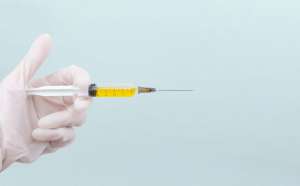Hobbies can significantly improve mental health by reducing stress, lifting mood and providing a sense of achievement and purpose. Whether it is painting, reading, hiking or learning to cook, engaging in activities you enjoy offers a valuable mental break from daily stressors.
A 2023 study found that regular participation in leisure activities was linked to a 30% reduction in symptoms of depression, highlighting the protective role hobbies can play in emotional wellbeing.
Why Do Hobbies Matter For Mental Health?
Hobbies provide more than just entertainment and act as a form of self-care. In a world filled with constant notifications and to-do lists, carving out time for activities that are personally fulfilling can ground the mind and reduce emotional overwhelm. Hobbies shift focus away from negative or intrusive thoughts and encourage mindfulness through action.
When someone is struggling with mental health challenges like anxiety or depression, hobbies can offer a vital lifeline. They provide structure, predictability and a reason to get out of bed which is especially important during periods when motivation is low.
How Do Hobbies Provide Anxiety Relief?
Engaging in hobbies has been shown to improve symptoms of anxiety. For individuals prone to worry or overthinking, a calming activity such as knitting, puzzle-solving or gardening can redirect mental energy into something soothing and productive. The repetitive nature of many hobbies can also have a meditative effect, slowing down the mind and nervous system.
Incorporating hobbies into daily life can also serve as a coping strategy taught in therapeutic approaches like Cognitive Behavioural Therapy (CBT). CBT often encourages behavioural activation, engaging in meaningful activities despite low mood or motivation, which hobbies naturally support.
How Can Hobbies Help Manage Depression?
People with depression often experience a lack of interest or pleasure in life, known as anhedonia. Introducing hobbies can gently counter this by reintroducing positive experiences and sparking moments of joy. Even small accomplishments, like finishing a puzzle or cooking a new recipe, can foster a sense of purpose and boost self-esteem.
Hobbies also support social connection, which is crucial in managing depression. Group activities such as book clubs, art classes or team sports can reduce feelings of isolation and remind individuals that they are not alone.
What Is The Role of Meaningful Activities?
Cognitive Behavioural Therapy often incorporates the idea that actions influence thoughts and emotions. Hobbies can serve as behavioural tools that improve mood by changing what we do. By engaging in enjoyable tasks, individuals can shift their internal dialogue, challenge negative thinking and create new, healthier routines.
For example, a person who feels stuck in a cycle of sadness might be encouraged to take short nature walks, pick up drawing or learn a musical instrument. This may not just be for distraction, but rather as a strategic part of their recovery.
How To Choose The Right Hobby
The best hobby is one that resonates with the individual as something they find interesting, achievable and rewarding. It doesn't have to be productive or result in a final product; the value lies in the experience itself. The goal is to find an activity that brings presence and peace, whether it is solo or shared with others.
Those new to hobbies can start small and explore a variety of activities to discover what fits. The key is to allow the process to unfold without pressure or expectation.
Final Thoughts
Hobbies offer more than a pastime as they are powerful tools for maintaining and improving mental health. From easing anxiety to supporting depression recovery, hobbies create space for joy, presence and connection.
Combined with treatments like CBT, they form part of a holistic approach to wellbeing. Whether it is painting, cycling, baking or journaling, the simple act of doing something you love may be one of the most effective ways to care for your mental health.






